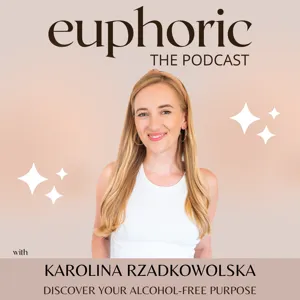Podcast Summary
Mediterranean diet goes beyond olive oil: The Mediterranean diet is a heart-healthy eating pattern rich in veggies, fruits, beans, whole grains, and moderate fish/meat. Socializing over meals and enjoying food in moderation are also key. Controversial allowance of alcohol and dairy.
The Mediterranean diet is more than just consuming olive oil. It's a whole food, plant-based, flexitarian eating plan that encourages the consumption of vegetables, fruits, beans, whole grains, and moderate amounts of fish and meat. The Mediterranean lifestyle also involves socializing over meals and enjoying food in moderation. The controversy lies in the allowance of alcohol and dairy, with some scores penalizing the absence of these foods. Ultimately, the Mediterranean diet is a heart-healthy eating pattern that has been linked to numerous health benefits, including reduced risk of heart disease, stroke, and certain cancers.
The Mediterranean diet's health benefits proven through long-term studies: The Mediterranean diet, rich in whole foods, plant-based sources, and healthy fats, has been shown to improve health outcomes and save lives through extensive research.
The Mediterranean diet, which originated from the inhabitants of Crete and is characterized by a whole food, plant-based diet with generous servings of healthy fats from sources like avocados, fatty fish, nuts, seeds, and olive oil, has been proven through rigorous long-term studies to improve health outcomes and save lives. This is rare in nutrition science due to the difficulty of conducting studies that intervene and track participants for years to study long-term effects on conditions like heart attacks or strokes. The Mediterranean diet contrasts with the low-fat diet that has been popular for a long time, as the Mediterranean diet contains 40% fat or more. Despite its indulgent nature, the Mediterranean diet's health benefits have been proven through extensive research and its adherents report enjoying the diet's delicious and varied offerings.
Mediterranean Diet: Emphasizes Whole, Unprocessed Foods and Healthy Fats: The Mediterranean diet encourages the consumption of whole, unprocessed foods and healthy fats, while reducing the focus on meat and processed foods.
The Mediterranean diet is not about eliminating meat completely, but rather reducing the focus on meat and increasing the consumption of whole, perishable foods. The diet emphasizes unsaturated fats from sources like olive oil, nuts, and seeds, and encourages the consumption of whole grains like millet, quinoa, and farro. The main focus is on whole, unprocessed foods, which were staples in Mediterranean cultures for centuries. Meat can still be consumed, but in smaller portions and as a side dish rather than the main focus of the meal. The key is to prioritize whole, unprocessed foods and healthy fats, while limiting processed and saturated fats.
Emphasis on Beans and Olive Oil in Mediterranean Diet: Replace empty calories from grains, refined sugars, and processed foods with nutrient-dense beans, vegetables, and olive oil for heart health and overall wellbeing.
The Mediterranean diet, as practiced in the heart of the Mediterranean, places a significant emphasis on the consumption of beans and the use of olive oil. These practices are underappreciated in the US and UK diets, which heavily rely on grains, refined sugars, and processed foods. Beans are a nutrient-dense, fiber-rich, and inexpensive source of sustenance, making them an essential component of many traditional diets. The Mediterranean diet, when compared to the typical US or UK diet, focuses on reducing added sugars and refined grains, which make up a substantial portion of caloric intake in those countries. By replacing these empty calories with beans, vegetables, and plants, one can significantly reduce their overall fat intake while still maintaining a balanced and nutritious diet. The benefits of this shift towards a Mediterranean-style diet have been shown to positively impact heart health and overall wellbeing.
Mediterranean diet: Cooking and planning required: Adopting a Mediterranean diet can improve health, but challenges include more cooking, planning, and understanding how to transition from current eating habits.
Shifting to a Mediterranean diet, which includes more avocados, nuts and seeds, fatty fish, and fewer simple carbohydrates, can help regulate blood sugar levels and improve overall health. However, adopting this diet may present challenges for some, as it requires more cooking and planning, and the flexibility of the diet may lead to confusion for some individuals. Additionally, understanding how to transition from current eating habits to a healthier Mediterranean diet can be complex. These challenges are why ongoing education and resources, such as this podcast, are essential to help individuals make sustainable and effective changes to improve their health. This aligns with our research on the Mediterranean diet, which shows that reducing added sugars and refined grains while increasing healthy fats can lead to better health outcomes.
Understanding and implementing the Mediterranean diet requires dedication: The Mediterranean diet, with its focus on olive oil, beans, whole grains, and a relaxed lifestyle, offers numerous health benefits despite the challenges of identifying it at the grocery store
Following a complex diet like the Mediterranean diet requires time and dedication to fully understand and implement all its components. While the ketogenic diet, which focuses primarily on eating low carb, may be easier to follow due to its simpler goals. However, shopping for healthy foods can be challenging as many processed foods misleadingly claim to be healthy. The Mediterranean diet does not have a specific symbol or label, making it harder to identify at the grocery store. Despite these challenges, the Mediterranean diet, which includes elements like olive oil, beans, whole grains, and a focus on a relaxed lifestyle, is worth the effort and offers numerous health benefits.
Maintaining a Healthy Lifestyle: Exercise, Sleep, Diet, and Animal Foods: Embrace a balanced lifestyle with regular exercise, adequate sleep, a nutritious diet, and optional inclusion of animal foods for optimal health, similar to the Mediterranean diet.
Maintaining a healthy lifestyle involves getting outside for regular exercise, ensuring you get enough sleep, eating a balanced diet rich in whole foods, and allowing for some inclusion of animal foods if desired. This approach aligns with the Mediterranean diet, which has been shown to have numerous health benefits. Join us in our upcoming full-length episode as we delve deeper into our analysis of various diets and provide our verdict on the healthiest one to follow. Remember, our podcast is for general informational purposes only and should not be considered medical advice.






